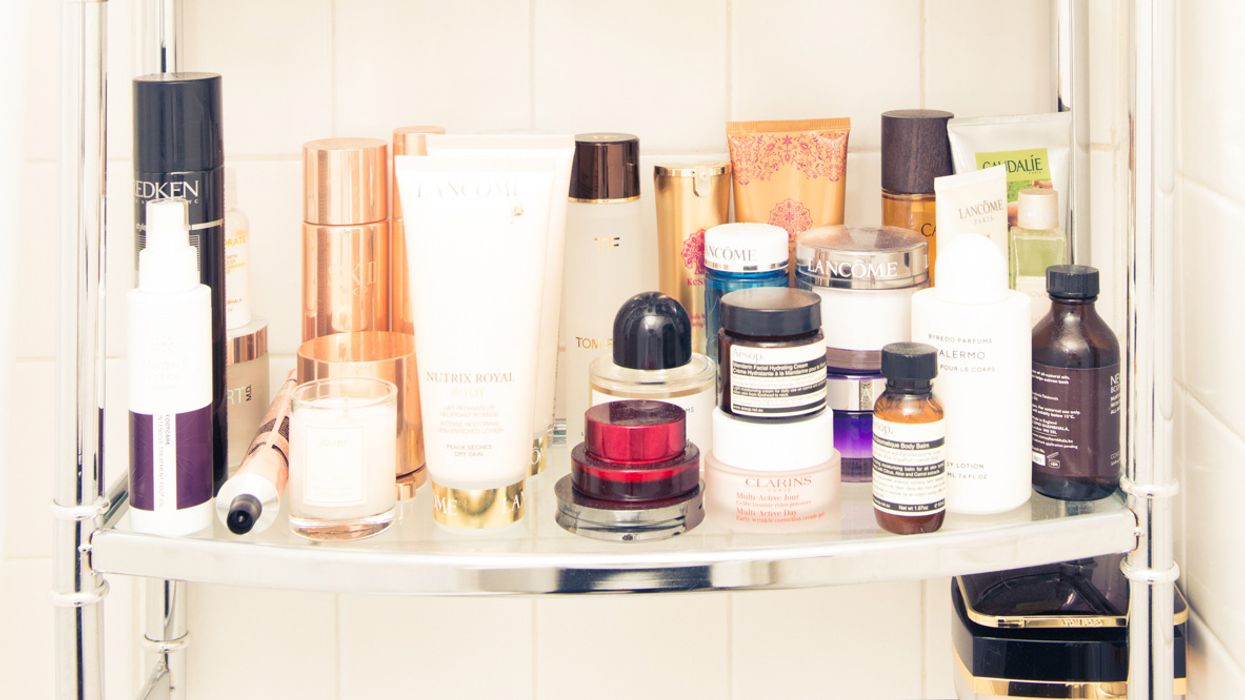The Truth about Parabens and Sulfates
Because spoiler: They’re in almost every beauty product you own.
01 November, 2018
Hair
10 November, 2021
So you’re doing your monthly (read: daily) peruse through Sephora/Violet Grey/beauty website of choice, and come across product after product claiming to be “free” of one ingredient or another. While that’s helpful for the educated (OK, obsessive) beauty junkie (:raising_hand:), in reality, the majority of us have little idea what said ingredients are and why products would boast their freedom from them. Two key and controversial players? Parabens and sulfates: the long-established additives found in everything from your toothpaste and shampoo to your treasured anti-aging cream.
In the name of making clean beauty a girl’s best friend (but we mean, we’ll obviously still take diamonds when offered), we hit up two big guns in the skin and hair-care industries—Eric Spengler, SVP of Research & Development at Living Proof, and Dr. Harold Lancer, celebrity dermatologist and founder of Lancer Skincare—to break down the good, the bad, and the science behind parabens and sulfates.
In the name of making clean beauty a girl’s best friend (but we mean, we’ll obviously still take diamonds when offered), we hit up two big guns in the skin and hair-care industries—Eric Spengler, SVP of Research & Development at Living Proof, and Dr. Harold Lancer, celebrity dermatologist and founder of Lancer Skincare—to break down the good, the bad, and the science behind parabens and sulfates.
What are parabens?
“Parabens are commonly used, come in half a dozen chemical variations, and have been around for 50-60 years. They’re basically chemical preservatives used in everything from shampoo to toothpaste to deodorant to skin care. Parabens are used to keep products shelf-ready and have been surrounded by controversy, but they’ve been around for a long time and are totally safe. I’ve never seen an allergy to it, and I’ve never seen breast cancer [editor’s note: an issue they’ve been linked to] due to it.” —Dr. Lancer
Are parabens harmful?
“Parabens are thought to be harmful because they mimic estrogen in the body, which was first linked to breast cancer and reproductive issues in the early 2000s. Some also believe that inhalation of these ingredients is harmful because if parabens can be stored in the body, there is a chance they could pose a health risk over time.” —Dr. Lancer
What are sulfates?
“Technically, a sulfate is a salt that consists of a sulfur atom, four oxygen atoms, and some other form of counter ion. Sulfates are commonly found in the environment—for example, there’s magnesium sulfate (aka Epsom salts). In personal care, the term ‘sulfate’ is often a form of shorthand for a very specific type of a sulfate-containing compound. Here, sulfates refer to a class of sulfate salts with a fatty acid. These are very efficient cleansers used in shampoos, body washes, and toothpastes. However, there are other, different sulfate-like compounds with functions that are very different from cleansing—for instance, as detanglers and conditioners. These sulfates are not typically what people think of when the term ‘sulfate-free’ is used. Confusing? Absolutely. So just think of sulfates as the shorthand for the fatty acid sulfates used in shampoos, etc., to clean hair.” —Spengler
Are sulfates harmful?
“Sulfates tend to get a bad rap because of how they function in shampoos—they can strip your hair of its natural oils, making your hair feel rough, dry, and brittle. There is no scientific data that shows sulfates are unsafe, however; in fact, the rumors circulating on the internet suggesting sulfates cause cancer have no scientific support. But there are still effective and gentler cleansing agents available [as alternatives].” —Spengler
How to spot them:
“The label won’t just say ‘paraben’ or ‘sulfate.’ They can go by different names on the ingredient label, like ‘calcium sulfate,’ because they tend to have some sort of pre- or postfix (like ‘methylparaben’).” —Dr. Lancer
Paraben- and sulfate-free products:
“The Lancer line is completely free of parabens and sulfates, but the masks are some of my favorites, such as the Radiance Awakening Mask and the Sheet Mask, as they have a long-term cell restoration component.” —Dr. Lancer
“Living Proof is a proud member of the Personal Care Products Council (PCPC). Click here to read the full commitment code. My personal [paraben- and sulfate-free hair-care] favorites are Living Proof No Frizz Nourishing Oil, Restore Instant Repair, and Curl Conditioning Wash. But honestly, the entire line is amazing.” —Spengler